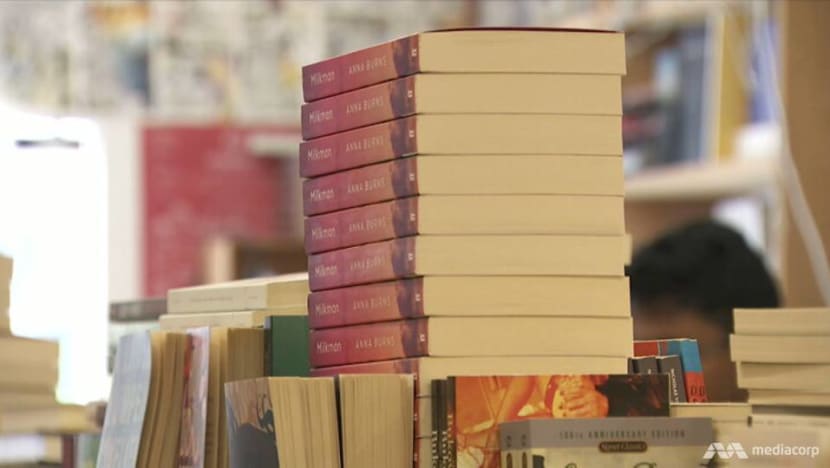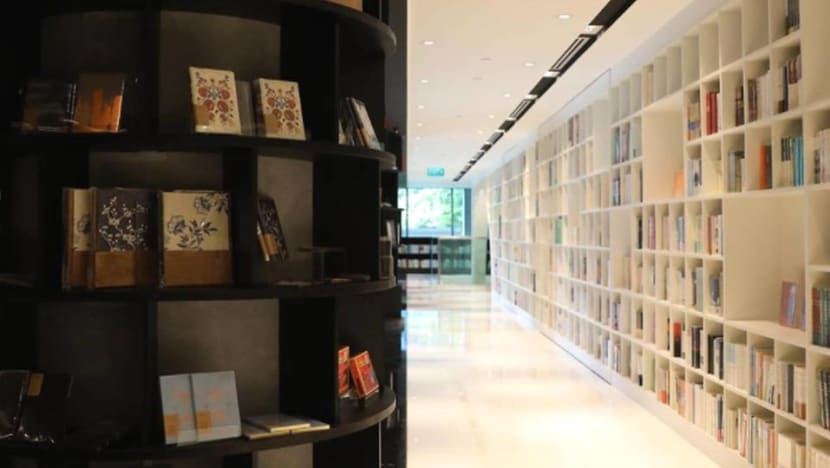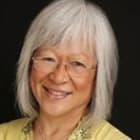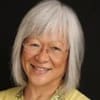Commentary: The great book revival in Singapore during the COVID-19 pandemic
We have stayed home more days than we've wanted to but we need not be a prisoner in our confined spaces, says Josephine Chia.

Rising rental costs had been one of the greatest challenges facing Tiong Bahru bookstore BooksActually.
SINGAPORE: In Roman mythology, Janus is the god of doors, gates and transitions. This reference is not just to physical gateways but to spatial, emotional, psychological and metaphorical space.
He is often depicted on a coin or in portrait as having two faces, but each facing the opposite direction. One faces the past, the other the future. Though he represents opposites, he also represents movement from one space to the other, thus the transitionary dimension.
You may have seen his icon displayed in theatres and playhouses, with his faces expressing joy as well as sorrow. This is the nature of duality that exists in our human condition.
But he is not without hope, for in his right hand, he holds a key to signify that a traveller has come to shelter in a safe harbour.
If you looked at what had taken place throughout the period of the COVID-19 pandemic, you may sense that the huge storm that had shocked the world is beginning to abate slightly.
READ: Commentary: Five pandemic lessons we have learnt that should tide us over any surge in cases
READ: Commentary: Some pain even as Singapore rises to the challenge of tighter COVID-19 measures
The global record is patchy but several countries are opening their borders and are moving from the pandemic stage to the endemic.
Singapore is still in a state of heightened alert. But change is definitely coming with vaccinations, testing and contact tracing being ramped up. Janus is heralding the transitory stage.
A PRISONER IN OUR MINDS
The change in daily rituals and circumstances, like working and schooling from home, have made personal space more precious. Especially, in a country where the majority live in HDB flats with confined space, it has been challenging to stay home.
It made people exhibit Janus’ two countenances, one of anger and fear, even of xenophobia, the other of heart-warming kindness to others.
There is an old saying that stone walls do not a prison make. We may have had to stay home more often than we liked in recent months but a prison does not come about because of restricted spaces but from the shutting of the soul to new, stimulating experiences that provoke thought and nurse contemplation.
For we can become prisoners in our minds too. Watching TV, HBO, Netflix etc is an escape. It can take us out of the containment of our homes for a while and give us some respite.
Many people therefore binge-watched. But there’s a limit to how many hours one can spend in front of a screen, before going hazy-eyed.
READ: Commentary: When Singapore homes become workspaces – huge changes in the house and beyond

As more meetings and events are being held online, on Zoom and other platforms, many are suffering from screen fatigue.
THE RUSH TOWARDS BOOKS
That is why books are making such an impressive comeback. The UK found last year that people have doubled the time they spent reading books during the lockdown, with sale of fiction books going up by 16 per cent despite bookstores being closed.
Interestingly, physical print-books are more in demand than e-books, possibly because e-books are still screen-based.
Personally, for me, an e-book doesn’t provide the comfort of touch that a print-book has. Perhaps the interaction with paper from a tree that had breathed life has an energy that cannot be replicated by an inert electronic device.
Proprietor of Closetful of Books, Ms Denise Tan says: “If we can’t travel, books allow us to do so.” Indeed. Though we cannot physically travel, the world in books do not close their borders. They stay open for us to roam and explore.
READ: Commentary: Why I still stay home most days even though circuit breaker has been lifted
READ: Commentary: Finding time to read is hard but here's how to get going again
Though our physical body is confined, our mental and psychological aspects of our being is untethered and free to wander in the wondrous worlds created by the story we are reading.
It is this sense of freedom given by books which many people are newly discovering or re-discovering. It is only through reading these books that one can feel free.
And it is in exploring new worlds that this inward journey helps people find what they have always looked for in everything they watch, do and hope for: Themselves.
BOOKSTORES SEIZING THE MOMENT
Bookstores which can assuage this urgent hunger are seizing the moment. New Chinese language bookstore Zall opened in Orchard in February.
In Singapore, boutique bookshops, like Books Actually, Woods in the Books, Chio Books, Closetful of Books, some of whom, have swapped their physical bookstores for online platforms are making healthy sales.

Their owners have a verve and passion for books. They treat them not as a mere product for generating income, but present them as portals to a myriad world of adventures, magic and creative expansion. Readers are invited, not just to buy, but to experience a book.
Denise tells me: “An indie bookstore is nimble enough to find new ways of putting books in the readers’ hands.”
Like the other indie booksellers, Closetful of Books play an active part in reaching out to their readers. Denise and her team used to run bookfairs in schools.
They were proactive in getting the books to pupils who may not have the propensity to go down to Orchard Road to browse in major bookstores. They interacted face-to-face with the kids and can ascertain their reading interests, then pair them with the right books to keep them coming back for more.
READ: Commentary: Do book recommendations now need parental consent?
READ: Commentary: Of course we don’t read poetry. We’re Singaporean
They engage authors to go to schools to talk about their books with fervour so that children can see that within the covers of books, stories come alive and are not just dead text.
During this period of the pandemic, due to restrictions of movement and size of crowds, Denise runs a similar service online, virtual book fairs to continue this dynamic interaction.
She acts as a book consultant to parents and libraries to recommend a range of books that will whet their children’s appetite for reading and stir their capacity for imagination.
The successful bookstores here are those that reach out to its potential readers, embracing them not just as buyers but as a community who enjoys reading and sharing stories, like in the halcyon, kampong days.

THE TRANSFORMATIVE POWER OF BOOKS
What is magical about reading books is its transformative quality.
Reading helps the reader to access her or his own creativity and imagination. Stuck at home, people felt the need to express their creativity.
Films encourage imagination but in a more limited way because the visuals in the film, pertaining to characters and places are interpreted and presented by their makers.
However, in books, though the writer presents the words to allow the reader to visualise the character and place, it is the reader who brings his own creativity to invent the characters and places as she or he sees them. That is why reading a book is that much more satisfying.
The reader has an active role in the creative process of the story as it unfolds. Story-telling has been around before tablets of stone first became books for reading. Psychologists will tell you the art of story-telling is an innate aspect of human living. Each of us tell stories about ourselves, to ourselves, and to others.
That is why spiritual teachings try to teach you how to manage the kind of story you tell yourself so that it remains a positive one and inspires you to great things.
READ: Commentary: Reading can be a useful escape from the circuit breaker in more ways than one
READ: Commentary: In defence of baking bread, watching reality TV and other frivolous fads in the time of COVID-19
MAKING THE MOST OF THIS SHORT LIFE
This pandemic has shown that life can be snuffed out easily. We know we have to make the most of our life, while we have the capacity.
We have to value our loved ones and others while we have them. We have to live our life to the best that we can. And if we can’t go out to scale mountains, swim with dolphins, skydive or whatever, due to the imposed limitations, at least we can do it vicariously through stories and books.
Like Janus, who holds the key to a safe harbour, books hold the key to our safe harbour. We can delight in our adventures and dreams, and still be assured of a safe haven in our own reading room.
Why not pick up your key and open to other exciting worlds?
Josephine Chia is author of many books, most famously Kampong Spirit: Gotong Royong, Goodbye My Kampong and the children’s edition, Growing Up in Kampong Potong Pasir, and most recently, Big Tree in a Small Pot.














